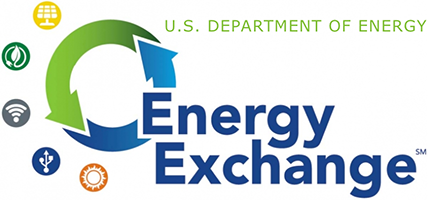Pittsburgh, PA

This session will explore strategies, processes, and tools available for building out the infrastructure to transition your fleet to zero emissions vehicles. Highlights will include: defining the objectives of the transition and resources available; identifying appropriate and available vehicles and charging equipment; understanding infrastructure requirements and upgrades needed; navigating technical challenges and budget constraints; tools available for estimating, planning, and designing an optimal configuration; understanding procurement options and finding the right partners; cost and savings estimates; and working with your utility companies. The session will also include case studies of real-world examples of government agencies that have successfully planned and implemented fleet transitions.
Instructors
Missy Klem, Program Engineer for NNSA Sustainability, National Nuclear Security Administration Read Bio
Missy Klem has worked for the National Nuclear Security Administration (NNSA) for over 20 years. She has worked in the sustainability field for most of that time. Her recent efforts have included fleet electrification and climate adaptation and resilience. She holds a B.S. in General Engineering from the University of Illinois and an MBA and MS in Civil Engineering from the University of New Mexico.
Lt. Col. Jake Bowen, Installation Energy Policy & Programs Program Manager (SAF/IEE), Office of the Deputy Assistant Secretary of the Air Force (Environment, Safety, & Infrastructure) Read Bio
Lt. Col. Jake Bowen has served on orders with SAF/IEE managing the Air Force's vehicle and support equipment energy portfolio since 2015. He manages energy related pilots, oversees research and development projects, and crafts the policy and strategy ensuring energy assurance for this portfolio. Lt. Col. Bowen earned a commissioned in 2002 upon graduating from the U.S. Naval Academy. His first assignment as a logistics readiness officer was at Hill Air Force Base where he completed 3 years of active duty, including deployments to Haiti and Southwest Asia. Lt. Col. Bowen transitioned to the Air Force Reserve in 2005 where he has enjoyed various assignments, deployments, and tours as a logistics officer for the Defense Logistics Agency, an acquisition manager with SAF/AQ, and a Foreign Area Officer with the U.S. Southern Command. Prior to his current assignment, he served as Program Developer with the Office of Transformational Innovation at SAF/AQ.
Ashley Paulsworth, EV Program Manager, Energy Services, AECOM Read Bio
Ashley Paulsworth is the EV Program Manager for AECOM's Energy Services division and is responsible for assisting federal agencies in planning their transition to electric vehicles and in deploying EV charging stations across their facilities. Prior to joining AECOM, Ashley worked as the Sustainability Manager for the County of Monterey and where she lead the charge to develop a fleet electrification plan and EV charging station program. She has a background in energy technologies and climate policy and has worked with the Department of Energy and multinational corporations to operationalize sustainability practices and programs.
Learning Objectives
Upon completion of this course, attendees will be able to:
- Recognize the goals detailed in Executive Order 14057 and Implementation Guidance, as they relate to electric vehicle fleets, transitioning to electric charging, and charging infrastructure deployment for federal and state/local fleets;
- Identify strategies, processes, and tools available for building out the infrastructure to transition their fleet to zero emissions vehicles;
- Recognize the components of holistic planning for fleet electrification, including power needs, utility engagement, safety considerations on sensitive sites, optimizing for fleet composition, understanding environmental factors, different business models, and alignment to other EO 14057 goals such as relate to CFE;
- Identify best practices other Federal leaders have deployed to implement EV charging for their fleets.









